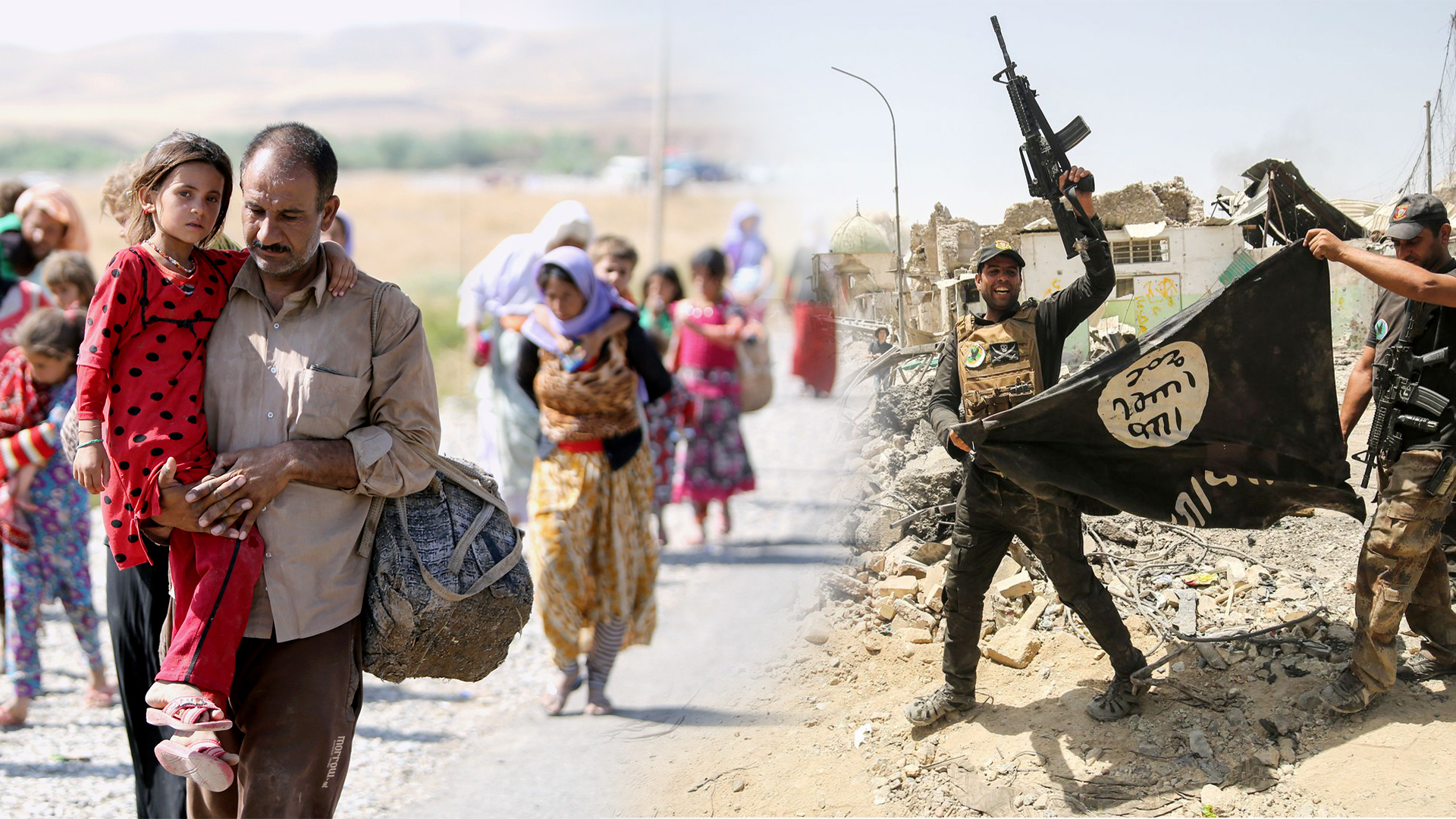Survivors of the Islamic State (ISIS)’s genocide of Iraq’s Yazidi community are still waiting for justice eight years later, and the Iraqi government must implement drastic measures to make sure they get it, said human rights lawyer Tatiana Rouhana in an op-ed for the Tahrir Institute for Middle East Policy.
Of Iraq’s approximately 500,000 Yazidis, some 10,000 were killed, an estimated 7,000 women and girls were kidnapped, sexually enslaved, and forcibly married, and over 300,000 people were forcibly displaced. Approximately 3,000 people are still missing.
Survivors of this genocide are being let down by an Iraqi judicial system that focuses on criminal justice, failing to address the sexual violence they suffered or to provide compensation to victims, Rouhana said.
Many cases of ISIS atrocities have been brought before the Iraqi courts. Yet, said Rouhana, “throughout its national prosecutions, Iraq has solely relied on its anti-terrorism laws which fail to criminalise a large sexual modus operandi defined in ISIS’ system of organised rape, sexual slavery, and forced marriage. This failure to capture the full range of the horrific crimes ISIS committed denies sexual violence survivors a critical opportunity to address the crimes committed against them.”
A German court has recognised that the crimes perpetrated by ISIS against Yazidis in their homes in Sinjar (Shengal) in northern Iraq constituted genocide. But, Rouhana said, “as a second genocide conviction against an ISIS member is handed down yet again by a German court, far away from home, one cannot help but wonder: Is criminal justice enough to fully provide the desired justice for the Yazidis?”
There is strong international desire for the ISIS atrocities to be prosecuted, but there are conflicting interests, and ISIS are not the only perpetrators of atrocities in the conflict, the lawyer said.
“It appears impossible to provide criminal justice for all violations committed against every survivor, and many survivors have voiced dissatisfaction and frustration with the flawed Iraqi legal system that precludes broader accountability,” she said, adding that consequently criminal justice has been unable to provide closure for all victims.
Rouhana discussed alternative forms of justice, such as restorative or reparative justice as applied in similar situations in places like South Africa, Sierra Leone, and Argentina. She noted the use of various models for confronting and dealing with mass atrocity, such as truth-seeking mechanisms and reparations to victims.
Iraq’s Yazidi community has been calling for self-determination as a distinct ethno-religious group, but this has always been denied. They speak of having been subjected to 74 genocides throughout their existence, of which the 2014 ISIS genocide is the most recent. Rouhana said the Yazidis have expressed bitterness about the roles of both the Peshmerga, who are said to have abandoned them as ISIS approached, and the Sunni Arabs, who reportedly assisted ISIS.
“Without a truth-telling initiative, these statements of frustration by the Yazidis, which depict their broken trust will grow their resentment deeper,” Rouhana said.
Such an initiative could be part of a more productive approach to the Yazidis based on reconciliation and transparency, rather than Iraq’s current criminal justice-based approach, the lawyer said. “It is important that there be a place for truth-telling and collective healing where Yazidis can learn the full truth about what happened and the fate of their missing relatives.”
Rouhana stressed that this approach must also centre the hundreds of thousands of Yazidis who are still living with the severe psychological impact of the genocide, often in refugee camps after being forcibly displaced from their homes – a burden that falls particularly strongly on survivors of sexual and gender-based violence.
The Iraqi government has moved to address this with the March 2021 Yazidi Survivors Law, which aims to offer financial, educational, housing and other support to female Yazidi, Turkmen, Christian, and Shabak victims of ISIS, kidnapped Yazidi children, and all survivors of mass extermination.
But the Iraqi government has not committed the resources to make the law operational, and it has not yet been implemented, said Rouhana.
As a result, she said, the Yazidis and Iraq as a whole need “reform, first of Iraqi criminal law to ensure that sexual crimes are also prosecuted domestically and second of Iraq’s transitional justice process to explore other justice options to comprehensively address all the needs of the Yazidis.”
Source:MedyaNews
***Show us some LOVE by sharing it!***



